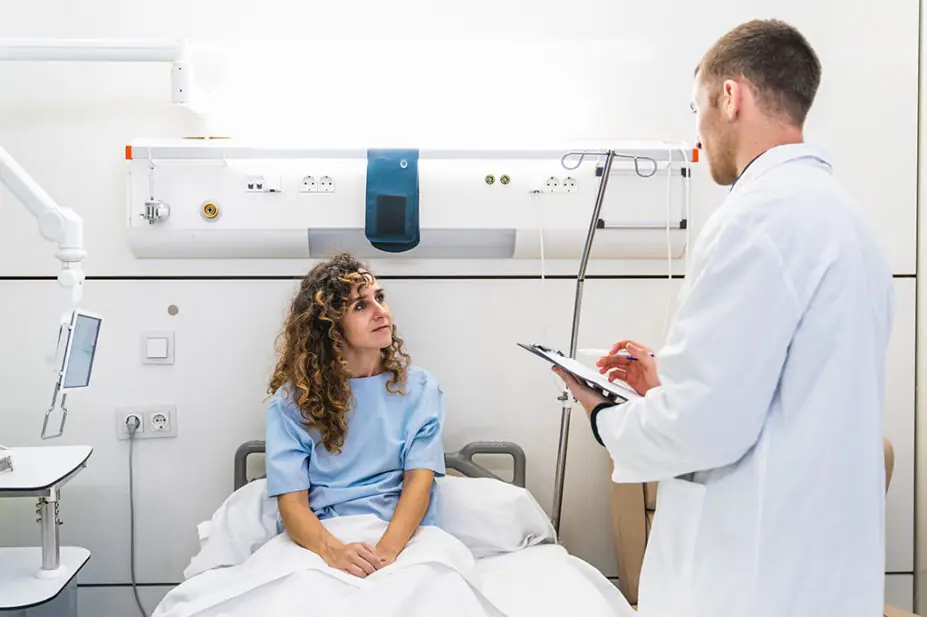
Shutterstock.com
Just 15% of NHS trusts are fully complying with recommendations from professional bodies over pharmacy support in emergency departments (EDs), an investigation conducted by The Pharmaceutical Journal has suggested.
An analysis of 201 freedom of information requests sent to NHS trusts in England with EDs found that, out of the 98 trusts that replied, only 15 trusts (15%) met the recommendations for pharmacist and pharmacy technician support that were laid down by the Royal College of Emergency Medicine (RCEM) and the UK Clinical Pharmacy Association (UKCPA).
The standards, published in a joint position statement in December 2023, include having 1 whole-time equivalent (WTE) dedicated pharmacist for every 10 resuscitation beds, with the addition of 1 WTE-dedicated pharmacist for every 20 high-acuity beds and at least 1 WTE pharmacy technician dedicated to the ED.
The analysis revealed that 43% of NHS trusts had a dedicated pharmacist for their ED, although only 22% of trusts met the full recommended level of pharmacist cover.
Adrian Boyle, president of the RCEM, said it was “concerning” that the majority of EDs still do not have a dedicated pharmacist and called on trusts to implement the guidance.
As an example, he pointed to the increase in long waits in EDs — with tens of thousands of people waiting more than 12 hours per month during the winter in 2024/2025 — as some patients dependent on time-critical medicines where delays or missed medicines could lead to patient harm.
Commenting on the figures, Kunal Gohil, a specialist clinical pharmacist working in the EDs at Nottingham University Hospitals Trust, speaking on behalf of the UKCPA emergency care committee, said they were likely to be an improvement on recent years: “Ten years ago, when I started in ED, specialist pharmacy technicians working actively in ED were extremely rare and the improvement would strike me as highly positive.”
Gohil added that the UKCPA was seeing more interest in the roles with requests for sample business cases.
However, he said the current economic conditions meant the UKCPA had to be “pragmatic” about the chances of getting more pharmacy resources directed into EDs.
Gohil said that lack of data meant it was difficult to say how figures have changed during that time, specifically for pharmacists in ED, but suggested it was likely to be an improvement.
Dan Greenwood, associate professor of clinical pharmacy at the University of Leicester, who looked at pharmacy input in EDs for his doctorate degree in 2020, said there was still a lot of work to do but the situation was “definitely moving in the right direction”.
“Trusts should invest in their ED pharmacy teams to support patient flow and increase safety through reduction in medication error rates. ED pharmacy teams can also improve the quality of care by ensuring medicines which require time-specific dosing and high-risk medicines are properly administered.”
Faisal Faruqi, an ED consultant at Nottingham’s Queens Medical Centre (QMC), said EDs benefit from pharmacists’ expertise in several ways, not just medicines reconciliation. “The integration of an on-site pharmacy in QMC’s ED has transformed medication safety, governance, efficiency and education,” he said.
“By ensuring timely access to life-saving drugs, improving prescribing accuracy and reducing medication-related risks, the pharmacy team plays a crucial role in enhancing patient outcomes and overall ED performance.”
Commenting on the figures, Tase Oputu, chair of the Royal Pharmaceutical Society England Pharmacy Board, said: “It is concerning that only a small proportion of trusts have fully implemented the RCEM recommendations. Pharmacy teams play a crucial role in emergency departments, helping to improve patient safety, optimise medicines use and reduce avoidable harm.
“Trusts must recognise the value of pharmacists and pharmacy technicians in emergency care and take steps to integrate them more effectively. This will support faster medicines reconciliation, reduce prescribing errors and, overall, improve patient outcomes.”
NHS Providers was approached for comment.
You may also be interested in

Hospitals should review pharmacy support in emergency departments, says health safety investigation body

Around 45% of hospital emergency departments have a clinical pharmacy service, MPs told
